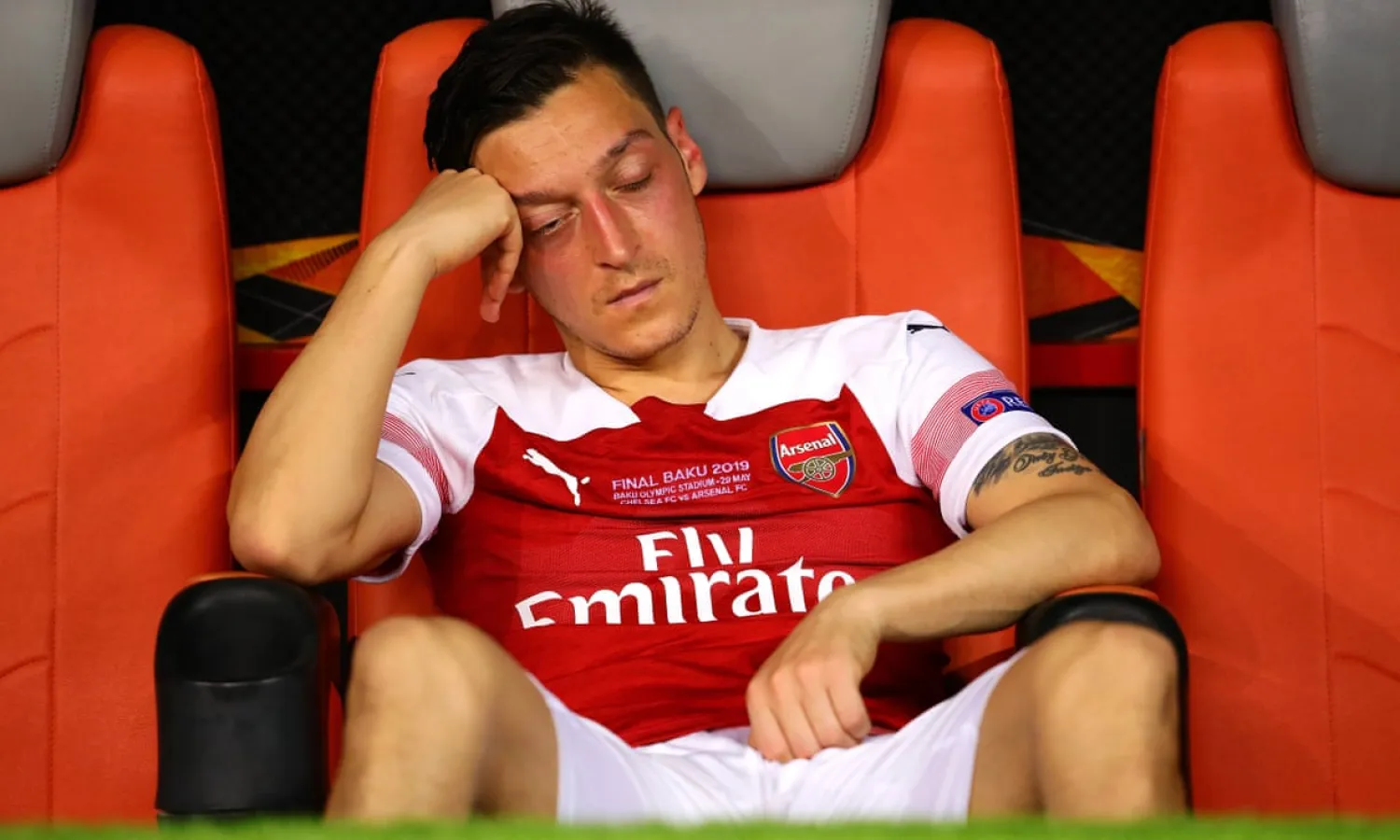As Mesut Özil trudged, head bowed, around the pitch at the end of it all in Baku it was pertinent to wonder what has become of him and where it all goes from here. He is the lost playmaker. His once proud joy in the assist, his once delicate ability to be the subtle architect of a game, has dwindled to the point where it is really worth revisiting a highlights reel from previous years to remember how – even with that idiosyncratic languid style which means he seldom looks keen for a battle – his gifts had so much more presence.
If being replaced on the night by a teenager who spent most of this season playing for Arsenal Under-23s yet managed to involve himself in the game more in a cameo felt like an indignity, the greater affront should be a broader question. What has happened to Özil? Why do the passes not come any more? What has dulled his vision? The questions were put into even sharper focus as the Chelsea player in his role demanded and dominated the final. Eden Hazard has earned the opposite journey Özil made a few years ago, from the Premier League to Real Madrid.
When Arsenal signed Özil in 2013 he arrived as a game-changer on and off the pitch. In many ways he turned out to be just that – a symbol that the club wanted to compete for eye-catching talent, reflective of refreshed ambition which led to Alexis Sánchez joining a year later. For a while the pair were outstanding together.
Everything took a turn when Ivan Gazidis felt panicked into handing Özil a gargantuan new deal in January 2018 to avoid losing both their grandest stars at the same time with contracts running down, as has happened in damaging fashion this season with Aaron Ramsey. Of course Gazidis walked out a few months later but his parting gift has turned out to be something Arsenal do not know what to do with. It is a major problem going forward.
This is a deal, worth £350,000 per week, Arsenal cannot afford while they are not getting enough return on their bucks. Özil has been involved in nine goals this season, delivering either the strike or assist. In the previous three campaigns the numbers were 19, 26 and 28. It is quite the reduction. He has made a mere three assists in 2018-19, and that with two skilled marksmen in front of him in Pierre-Emerick Aubameyang and Alexandre Lacazette who have scored regularly.
And here is the extra problem: Arsenal’s highest earner and their current head coach evidently do not have a connection that works for either of them. One year into a difficult job but with little exciting evidence of improvement or new direction, and with Champions League qualification – the main aim of the season – unachieved, a recently divided fanbase has started to question whether Unai Emery is the right man.
It is easy to slip into those thoughts in a modern football culture where Maurizio Sarri’s position is far from secure despite finishing third and winning the Europa League –two aims Emery had a month ago before watching his team flail in both.
Some wags on the internet have started to call Emery “Bruce Rioja”. It is a clever pun, and the inference is a comparison with an Arsenal manager who took over from a powerful and successful predecessor and, despite his best efforts, was ousted after one season. Bruce Rioch was the fall guy in 1996 when the star player of the day, Ian Wright, could not connect with him and Arsenal decided to go down a different road by appointing Arsène Wenger. Those were different times, though. Back then Arsenal had an ambitious board ready to be dynamic and take difficult decisions.
It does not look as if it will be healthy for Arsenal to go into next season with Emery trying to make the best of it while Özil hangs around picking up such a high proportion of the wage bill. But it would be a surprise if there turns out to be enough conviction from on high to do something about that one way or the other, to clean a slate somehow.
Emery had tried quite hard to inspire Özil when he arrived in London. That seemed particularly important because the player had gone through a personal crisis in his career, scapegoated for Germany’s woeful World Cup. Özil felt pushed to step away from the international stage with grievances about racist undertones in how he felt perceived as a German with Turkish heritage. Emery tried to put the metaphorical arm around him, told him he was valued at Arsenal, that he wanted to see him enjoy his best football. Özil was given a share of the captaincy and the No 10 shirt, symbols to make him feel valued. But then reality set in.
These two men exist at different ends of the spectrum when it comes to the idea of hard work being central to football. It began to grate on both of them. After a period when Özil was dropped and hard words were said as one last throw of the motivational dice, he was reintegrated into the side. But he has seldom sparked in the Emery era. His Baku non-event of a performance typified that.
He is 30 now. The Özil question matters profoundly to Arsenal. But it comes with no simple answers.
(The Guardian)









